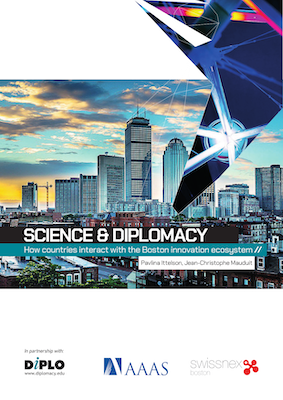Note: This article is a part of the publication ‘Science diplomacy capacity development: Reflections on Diplo’s 2021 course and the road ahead’
Diplo’s Science Diplomacy course was an extraordinary experience for me because it was created from scratch and addressed an emerging field. We are living in an era in which the importance of cooperation between scientists and diplomats, and the need for mutual understanding, is rising. For many decades there were just a few areas connecting these two fields of human activity, but these areas are becoming more numerous.
Science gives us explanations of natural phenomena, describing interrelationships, and aiding understanding of processes in nature. We are currently living in a world where science is not just a human activity which gives us knowledge and a basis for education. Today the development of science and technology influences every person and every country in the world.
With a scientific background, I have always tried to promote and explain science. I believe that scientific facts should be explained to the public, and that everyone has the right to be informed about scientific knowledge. In the last ten years, science has intertwined with the development of human society to the extent that the interests of countries as well as global companies are now involved.
Science is no longer reserved for scientists, because it has much broader implications. That is why I have a personal connection with this topic. I think that platforms need to be established for discussion, collaboration, and mutual understanding of scientists, diplomats, politicians, companies, international organizations, and the civil sector.
Science Diplomacy is a very interdisciplinary field of human activity. Different scientific disciplines help to understand the complex world, but as such they also have an impact on different parts of society and human work. Science has always been global, but it is no longer global only in a closed scientific community. It affects different countries, regardless of whether they themselves are part of certain research processes.
Space as a public good, for example, has recently become interesting for countries that have not had their own space exploration, as well as for private companies. Space exploration may actually concern each of us individually, as well as each country.
Because of this, Science Diplomacy is a multistakeholder field. It is interdisciplinary due to the complexity of the topics it covers and the processes that surround it. It is a multistakeholder field because dealing with it requires the involvement of all actors. Due to this complexity, together with the fact that this is a new area, Science Diplomacy is especially interesting and important.
This course gave us the opportunity to work with people from different countries, with different backgrounds and perspectives. Working with the participants provided an opportunity to look at things from a different angle, to learn something new and to have fruitful discussions. This course was useful for all – participants and lecturers/facilitators.
All participants are now aware of the fact that both scientists and diplomats should have their place in international cooperation in this field that concerns the entire planet. Scientists should help diplomats understand the complexity of research and scientific results, and diplomats should involve scientists in decision making processes.








